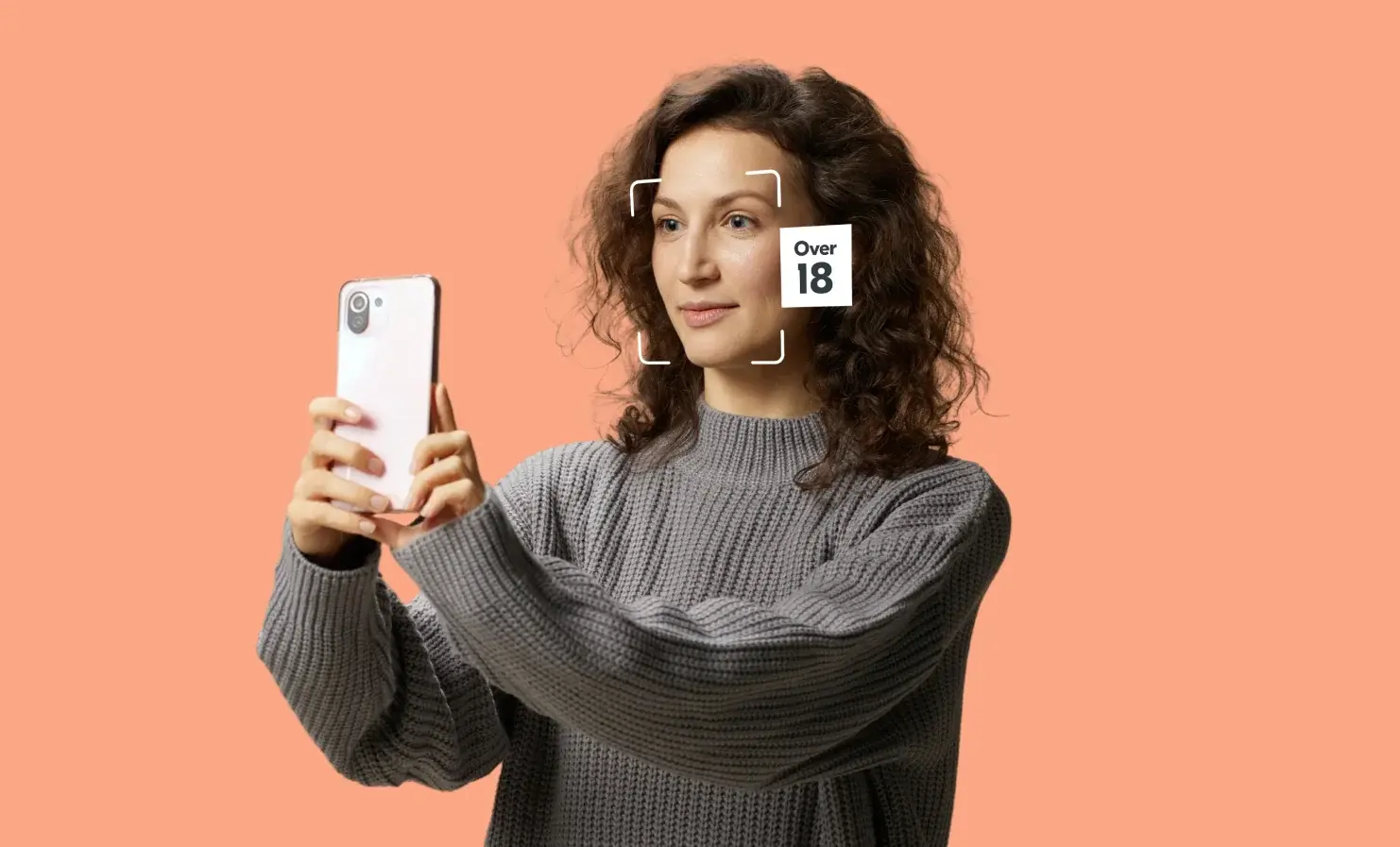
As we get our heads back into work after the festive break, our team has shared a look at what’s coming up in 2025.
A significant year for online safety
2025 will be a year of action. It will be a significant year for online safety, with a number of regulations coming into effect. And they have already started.
In Florida, a law came into effect on 1st January requiring social media platforms implement age checks to prevent children under 14 from creating accounts. Additionally, children aged between 14-15 years old must get parental consent to create an account. The law also mandates that adult sites must verify users are aged 18+.
The US Supreme Court hearing on 15th January 2025 will assess the constitutionality of Texas Law HB 1181. The Court will consider whether modern age verification technology is user-friendly enough to avoid excessively burdening adults’ right to access content online.
In France, 11th January 2025 marks the start of the transitional period, by which adult operators and platforms with pornographic content need to start age checking. They can do this using credit cards for three months until 11th April 2025. After April, they will need to use other methods such as age tokens, facial age estimation and digital ID wallets.
The UK Online Safety Act will begin to be fully enforced this year. This month, Ofcom publishes the final guidance on age assurance for pornography providers and expects these duties to become enforceable around the same time. From March 2024, the Illegal Harms Code of Practice will be enforceable, and from July 2025, the Protection of Children Codes of Practice come into force.
In Australia, the Online Safety Amendment (Social Media Minimum Age) Bill 2024, will come into force towards the end of the year. This legislation will prevent anyone aged under 16 from accessing social media platforms. Before the Bill comes into effect, the Age Assurance Technology Trial will test the effectiveness of age assurance technologies. Initial outcomes from the trial will be made available from April 2025 with a final report expected to be published in June 2025.
As more regulators around the world are exploring online safety legislation, we wouldn’t be surprised to see even more legislation updated, introduced or enforced this year.
The threat of deepfakes will continue
Unfortunately, the rise of deepfakes will accelerate. A quick search for ‘deepfakes’ shows numerous stories of people falling victim to scams, and last year saw one of the most high profile deepfake scams, with one business losing £20 million.
Some businesses claim they can identify deepfakes, but the rapid advancements in AI image generation suggest that reliably detecting deepfakes may become virtually impossible in the near future, particularly for humans.
Our solutions focus on deepfake protection. Our liveness technology stops people from using a photo, video or mask when completing an age or identity verification check. Our patented Secure Image Capture And Processing device (SICAP), live since early 2022, effectively protects against increasingly popular injection attacks.
And we’ve been working on a new solution, which can protect people and businesses from deepfake calls. We’ll be announcing more on this very soon.
Greater demand for reusable digital IDs
Over the last two years, regulatory changes have encouraged more of the industry to recognise reusable digital IDs.
The biggest impact so far has been the changes made to employment checks. When the UK Government updated the law to allow digital IDs to be used for right to work, right to rent and criminal record (DBS) checks, this was a huge step forward. This opened the door for secure, remote and convenient identity identification.
Digital IDs give people an easier, more efficient way of doing things that usually involves paperwork and time-consuming, manual processes. We do over 100,000 digital identity checks every month, and over a third of people complete a DBS check with our reusable Digital IDs.
The adoption of reusable digital IDs will accelerate in 2025. The UK Government has announced that by the end of 2025, people will be able to use a digital ID to buy alcohol. This is a significant step forward and will boost the adoption of digital IDs. By the end of 2026, it’s likely 10 million to 15 million UK people will be using a digital ID.
Ever since launching the Yoti app in late 2016, people have told us they want to prove their age on their phone to buy alcohol at supermarkets, convenience stores, pubs, clubs, bars and other leisure events. Our Yoti community has been patiently waiting for years for this legislation to change and 2025 is the year it’s finally happening.
Additionally, once the UK Data Bill passes, this will open up even more opportunities for digital IDs in the UK. They will be recognised by more regulators and businesses, which means people will be able to use their digital ID in more places.
When digital IDs have more utility, they become increasingly valuable and beneficial to more people. In turn, more businesses are likely to adopt digital IDs, given they will be the quickest way to connect with verified customers. It becomes a virtuous circle and doesn’t cost the UK taxpayer hundreds of millions of pounds to realise.
Closing the gap between one-off identity verification and reusable digital IDs
With the increasing popularity of digital IDs, we are bridging the gap between one-off identity verification and reusable digital IDs.
With a one-off identity verification, people are asked to show or upload their identity document (such as a passport or driving licence) and then take an image of their face which is then matched to the document to be sure it’s owned by them. This is a single use transaction that needs to be repeated by the individual every time they need to prove who they are.
As the UK Government throws more support behind digital IDs, and as we see increasing demand for our reusable Digital IDs, we will be helping more businesses and their customers to adopt digital IDs in 2025.
With a single integration, we can help users to import the one-off identity verification they complete on a website or app into one of our Digital IDs apps (Yoti ID, Post Office EasyID or Lloyds Bank Smart ID). They can then reuse their Digital ID to verify and authenticate themselves again and again.
This is the natural evolution of identity verification. When a verified identity can be securely stored on a user’s phone, and only accessed by the user, it gives them the ability to prove who they are in seconds – creating a more seamless experience.
We have one other innovative, very important service to launch in the first half of 2025 that we’re very excited about but we‘re keeping that under wraps for now!
To keep up to date with Yoti news throughout 2025, follow us on LinkedIn.




